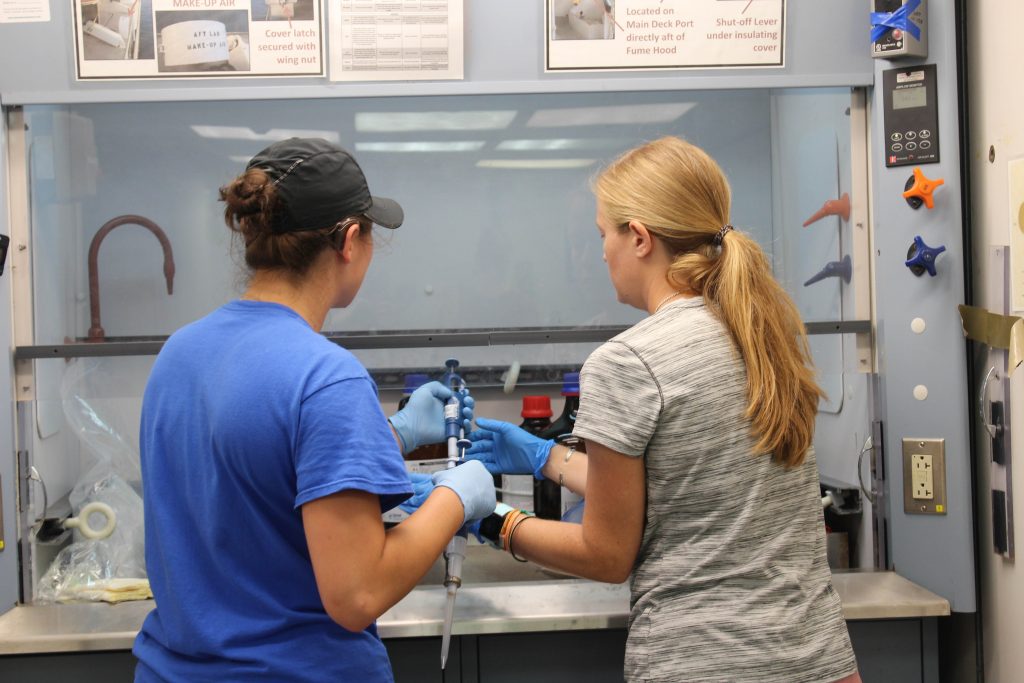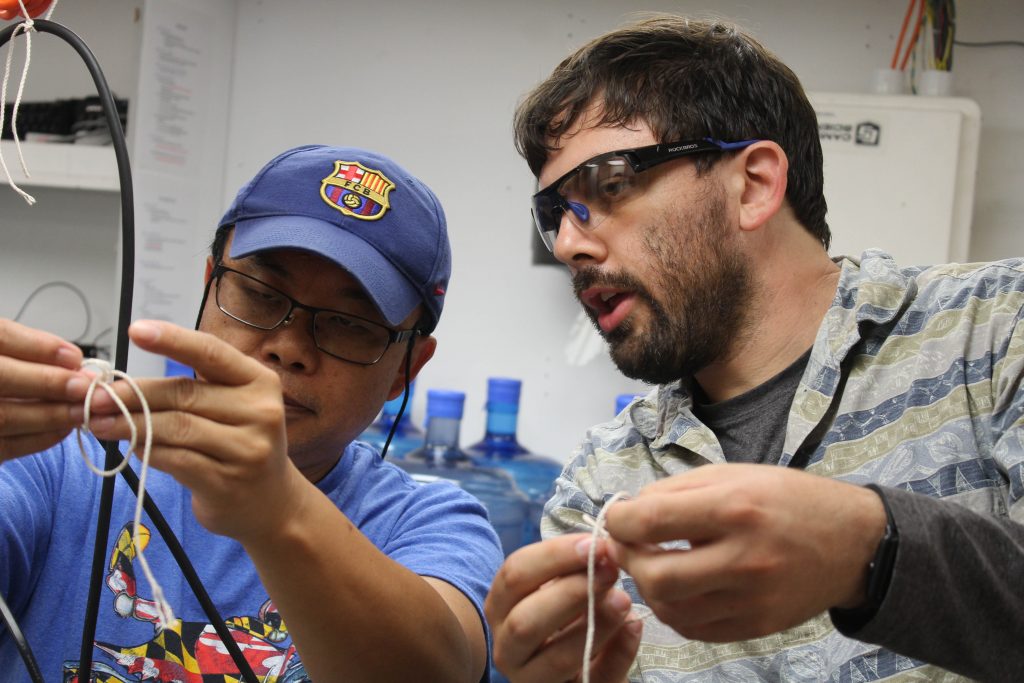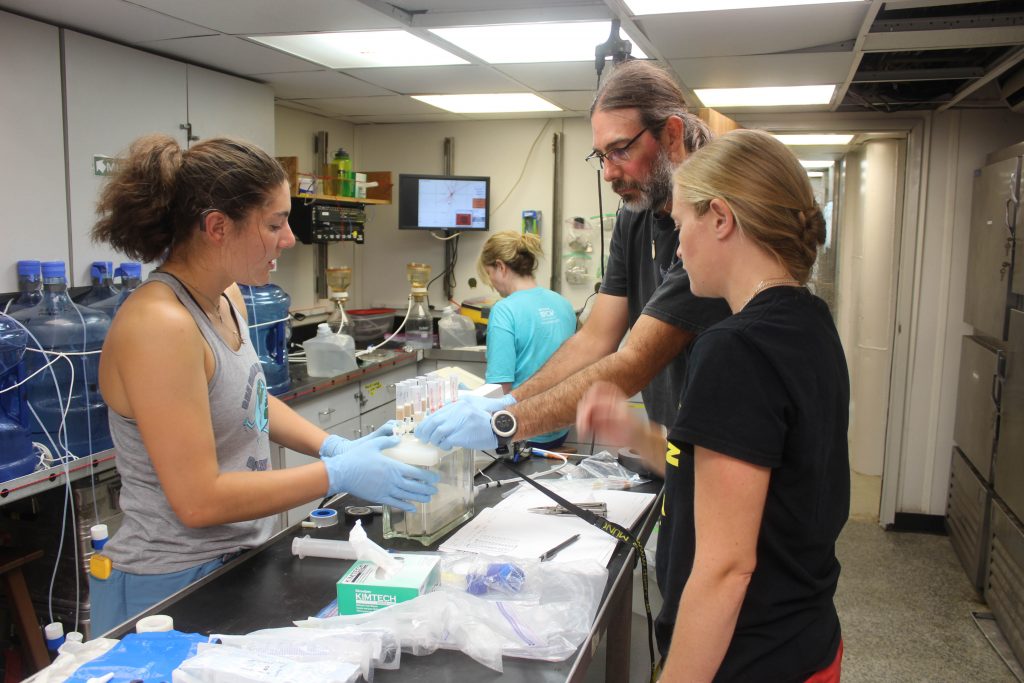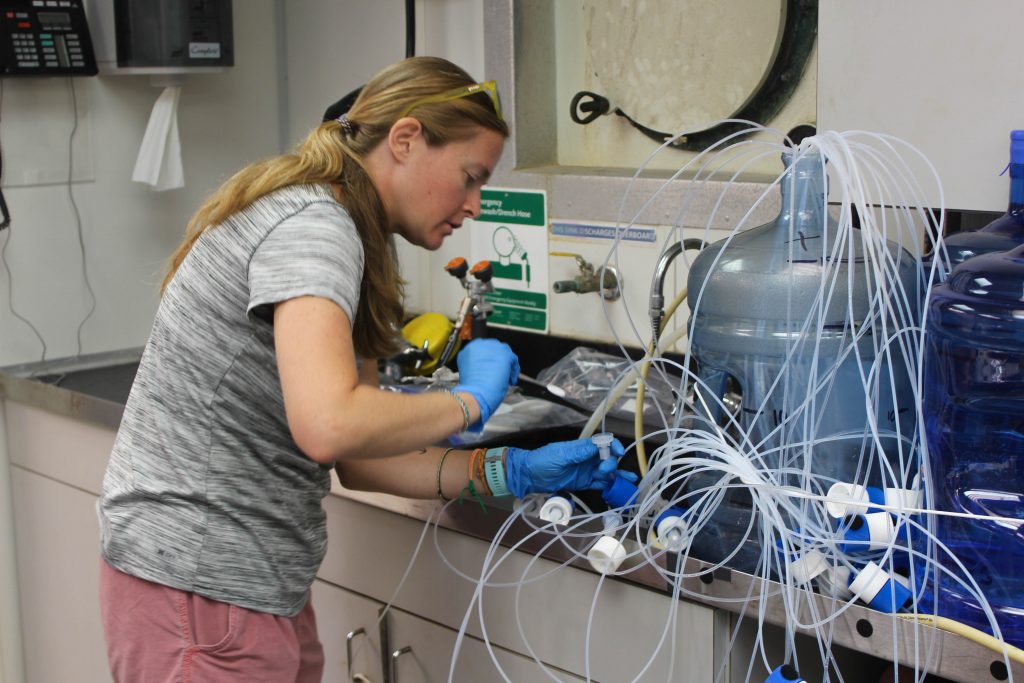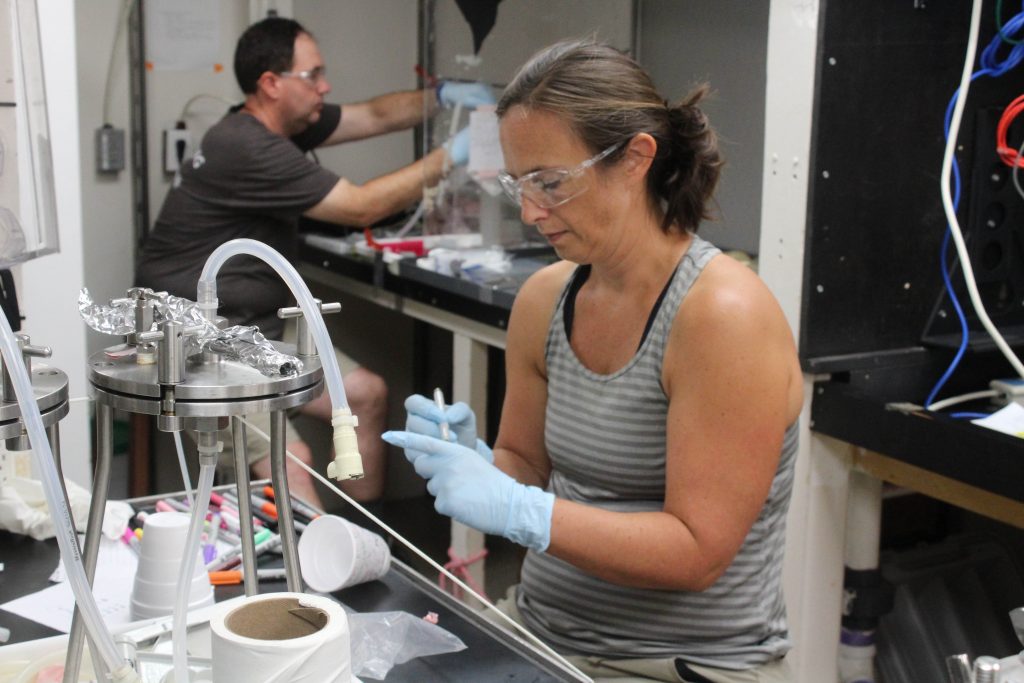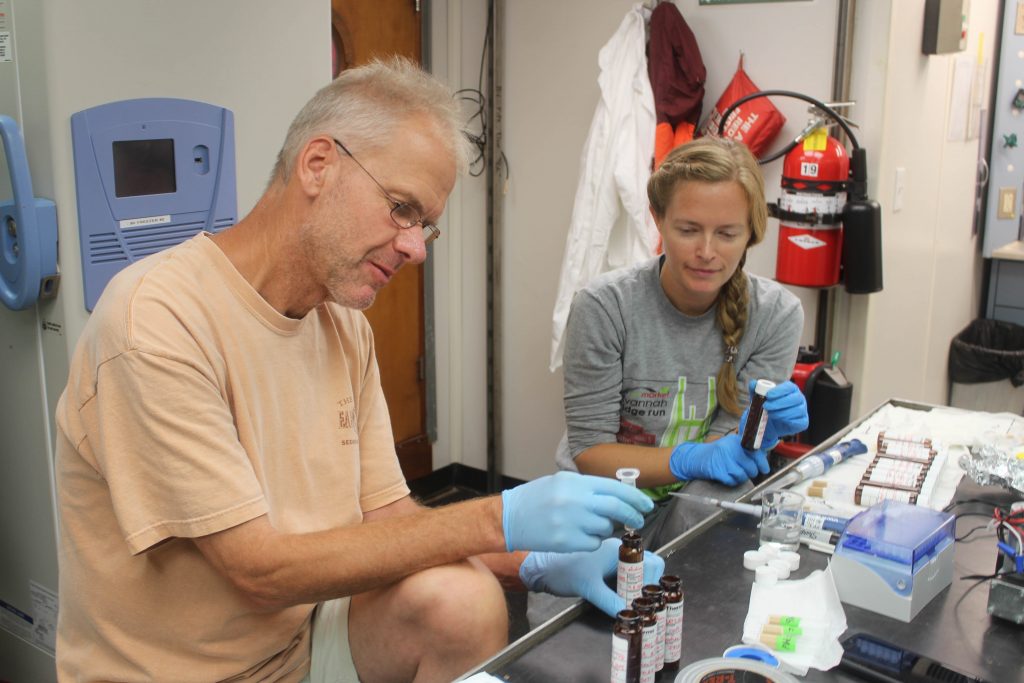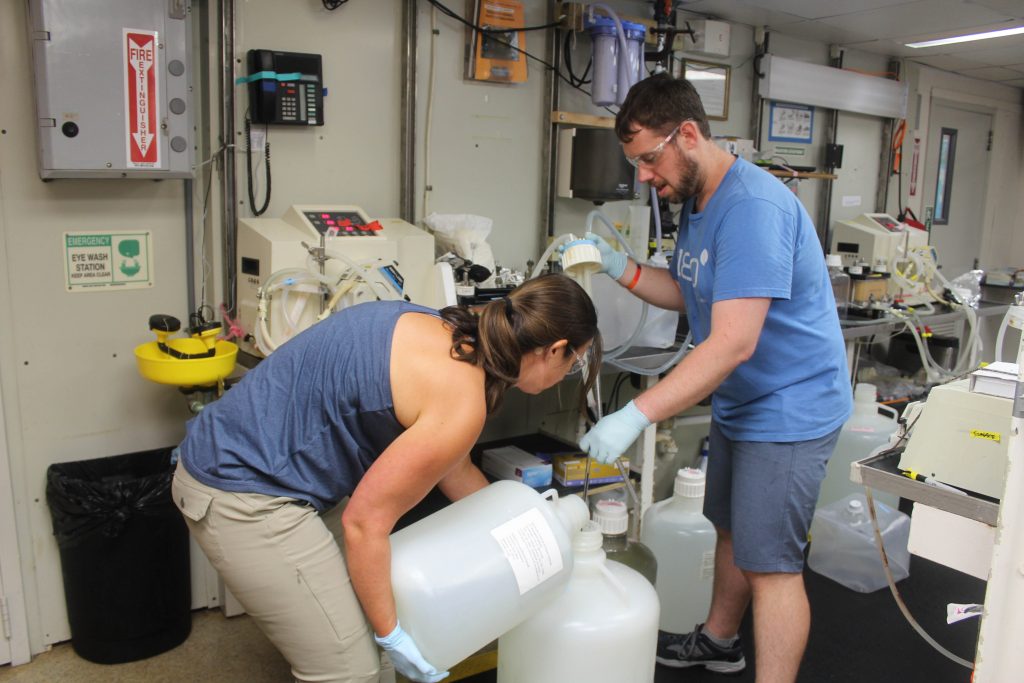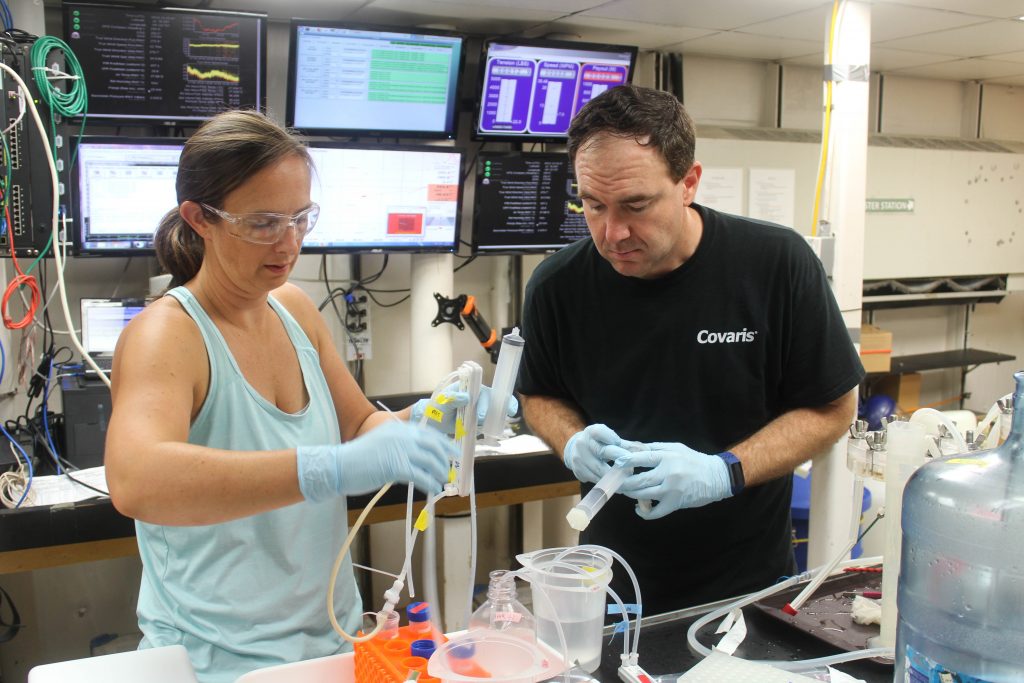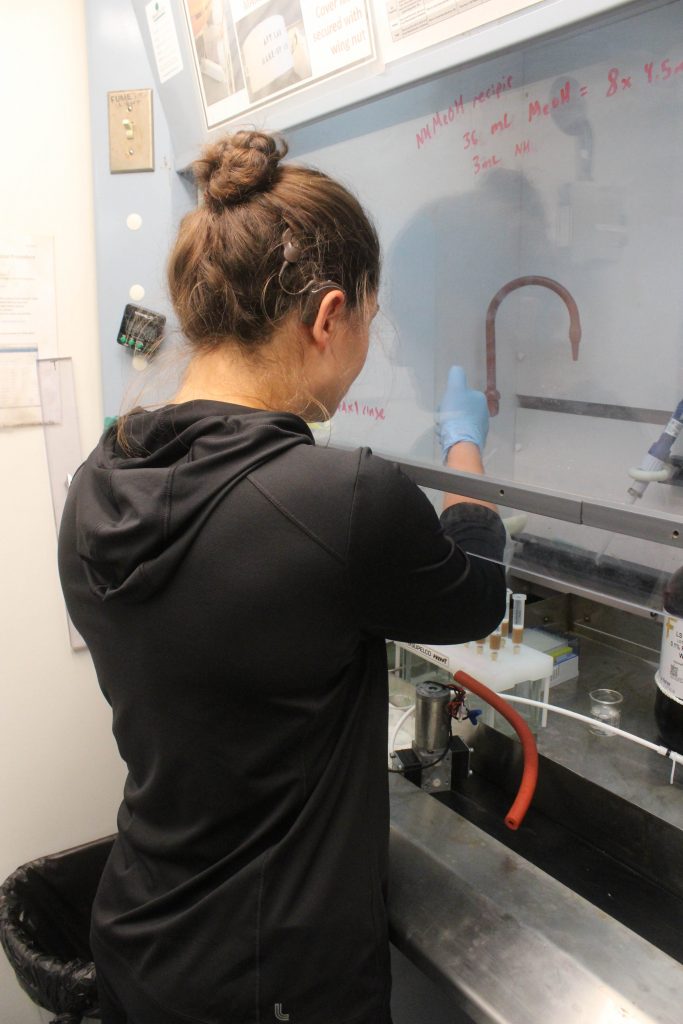Follow along as our scientists conduct research at sea
The cruise comes to a close
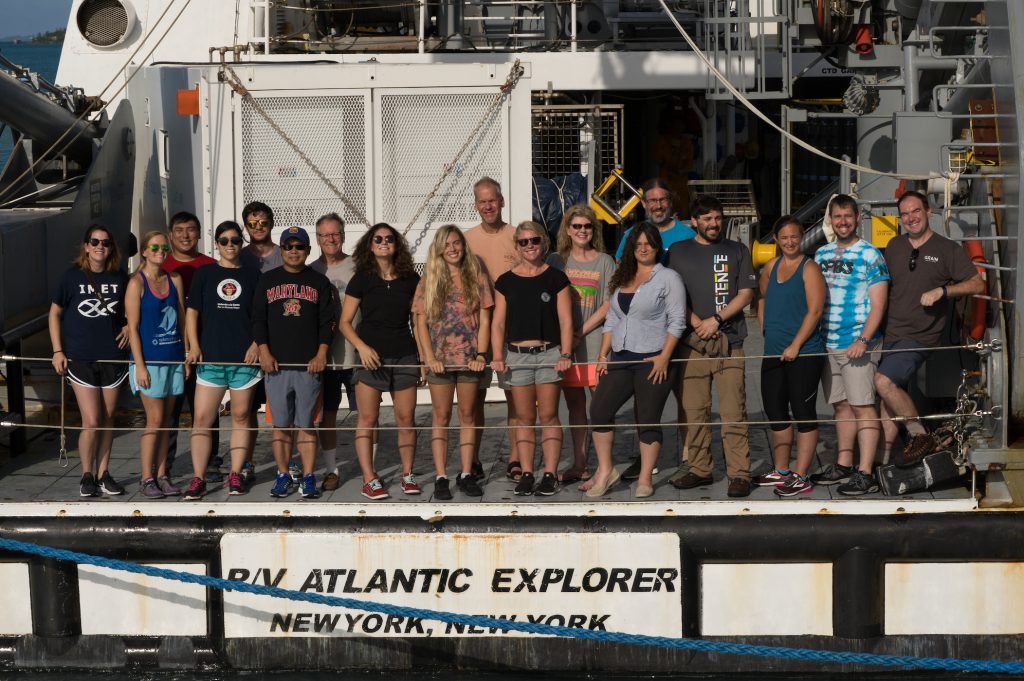
Fifteen scientists, 12 crew members, more than 5 tons of water collected, and one successful scientific research cruise completed.
Our six-day long excursion on the R.V. Atlantic Explorer has come …
Why does dissolved organic matter matter?
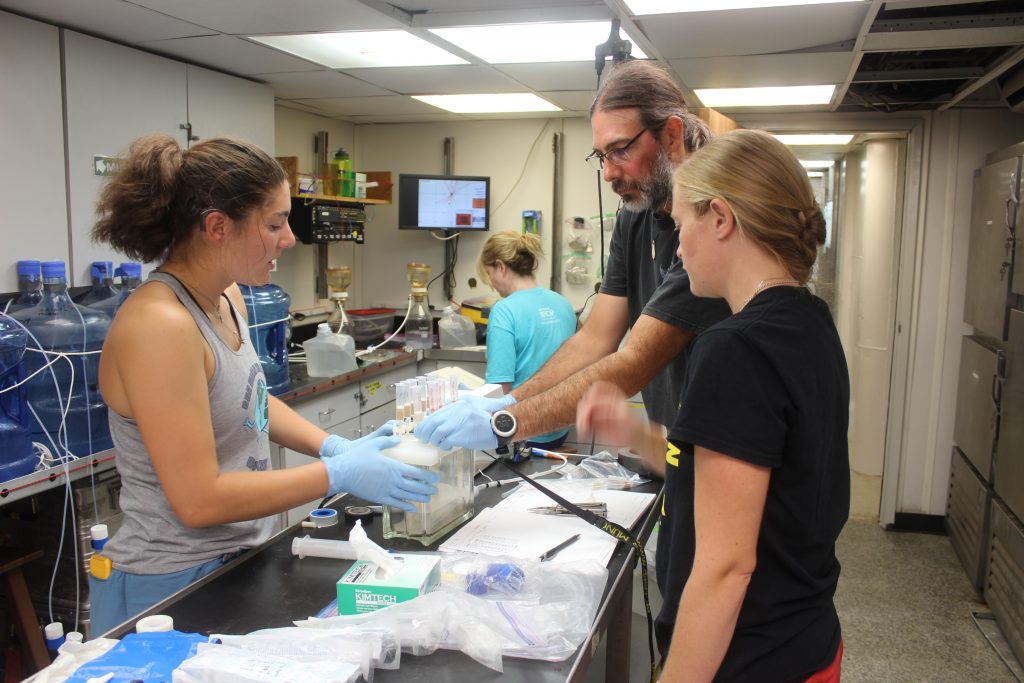
Deep sea dissolved organic matter (DOM) holds almost as much carbon as the atmosphere holds in the form of carbon dioxide.
The difference between …
Sights at Sea
It’s not all science at sea… there are tons of sights to see!
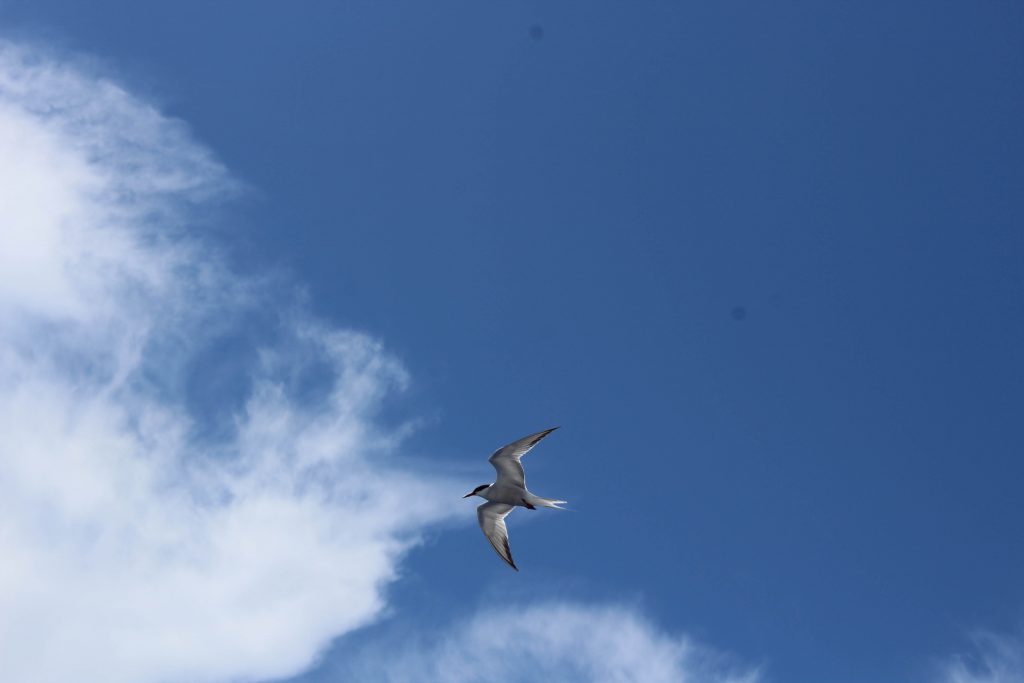
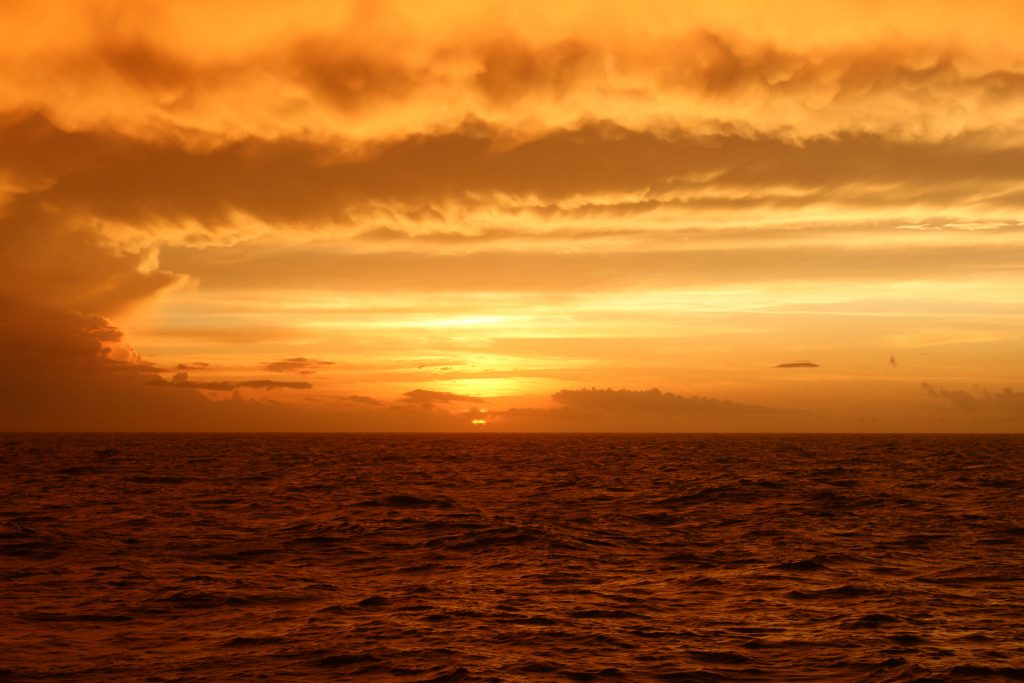
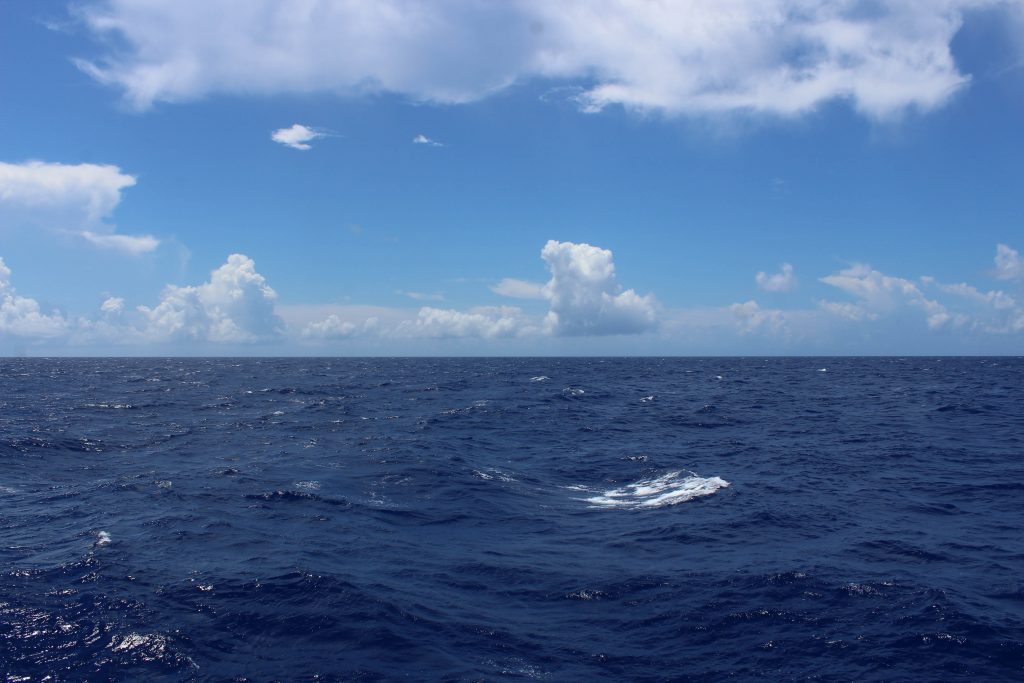
If you give a chemist a cookie
One of the best things about being aboard the Atlantic Explorer—- other than the budding scientific discoveries and the intellectual spirit— is the food.

Marine snow and super soakers at sea
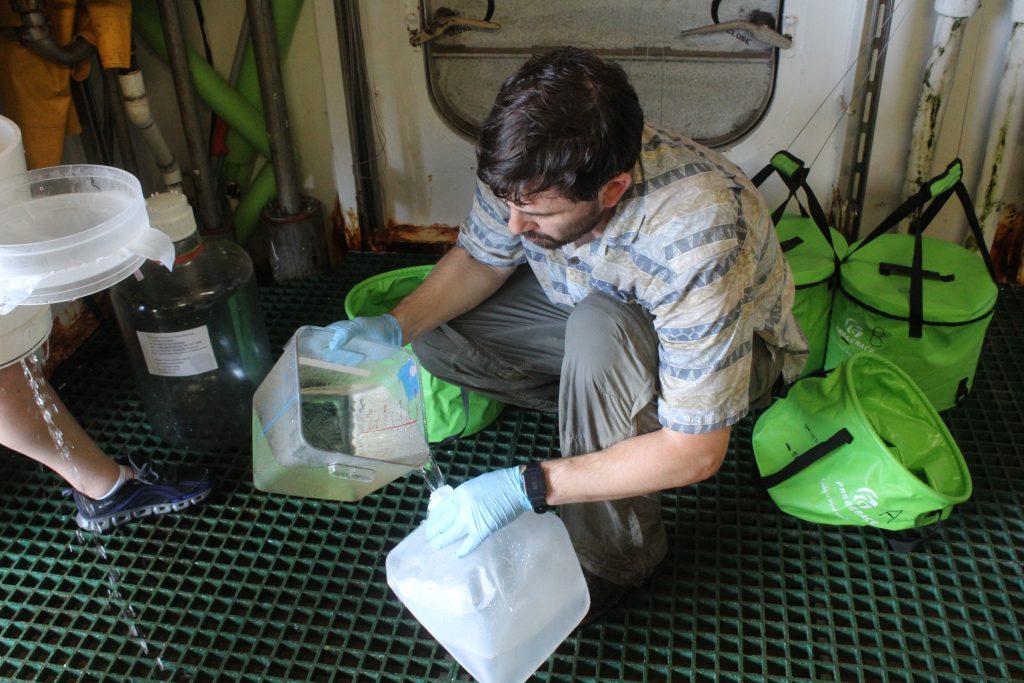
You wouldn’t typically see a snow while at sea in the Caribbean but thats not necessarily the case under the ocean’s surface. Jacob Cram from the University of Maryland Center for Environmental Science came on this research cruise to investigate …
Bacteria and deep sea viruses, oh my!
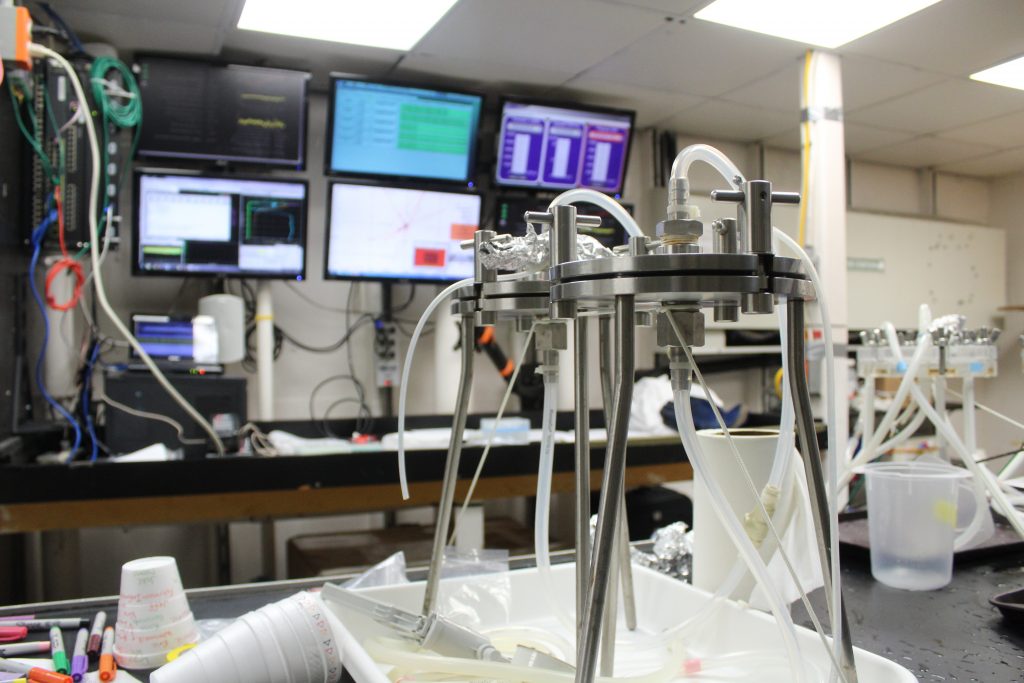
The main lab on the ship is home to microbial ecologists from the University of Maryland Center for Environmental Science’s Institute of Marine and Environmental Technology (IMET) and the University of Delaware. The team’s processes rely heavily on each other …
Where do the scientists sleep?
Stretching 180 feet, the Atlantic Explorer— a medium sized research vessel–can support scientific teams for several weeks. It’s fully equipped with a kitchen, living quarters, 3 laboratory spaces, and 2 common areas—- and even a treadmill if you’re brave enough …
Rough seas and more CTDs
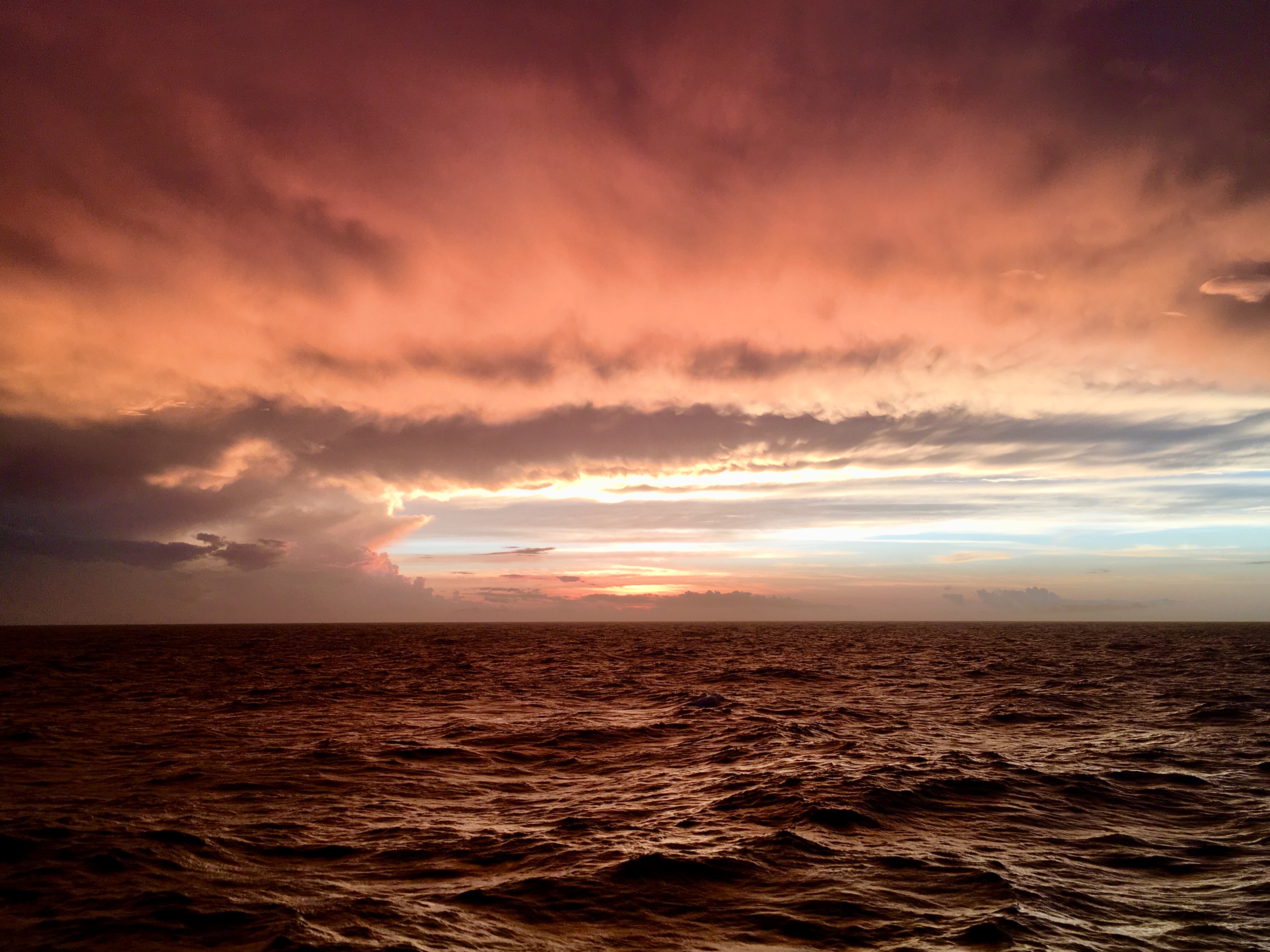
It was an early morning for scientists aboard the R.V. Atlantic Explorer with the first of the casts coming up at 3:30 a.m., after an especially rocky night.
Captain Quentin Lewis informed the head P.I. that seas were rougher than …
How scientists retrieve water samples from 4,500 meters
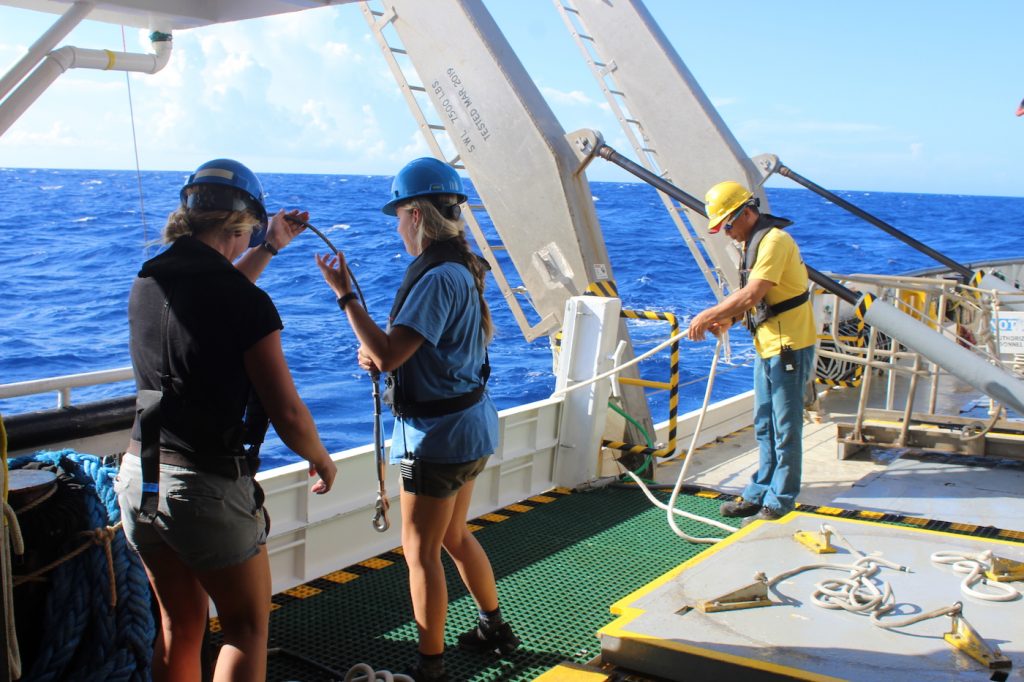
Ever wonder how scientists are able to collect water from the deep sea and ensure that their samples only have water from that exact depth?
The study …

